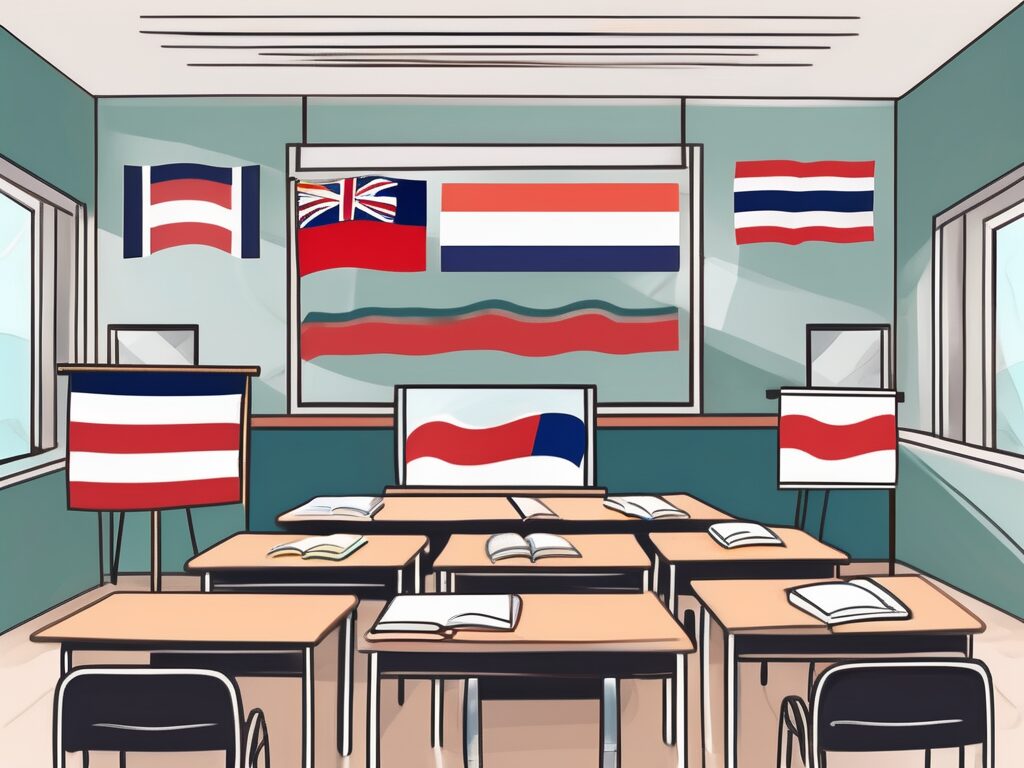Top Bilingual Education Challenges in Thailand: Insights for 2025
Bilingual education has emerged as a pivotal topic within the educational landscape, particularly in Thailand, where the integration of English as a secondary language presents unique challenges. This guide aims to provide education consultants with a comprehensive understanding of the complexities surrounding bilingual education in Thailand, highlighting the challenges faced and proposing actionable solutions to enhance the educational experience for international teachers and their students.
Current Landscape of Bilingual Education in Thailand
In recent years, Thailand’s educational framework has undergone significant reforms, driven by the government’s recognition of the necessity for English proficiency in the global economy. The implementation of bilingual education programs in schools is a key initiative aimed at improving language skills among students.
Despite these advancements, several challenges impede the effective execution of bilingual education. These challenges include:
Resource Limitations
A primary obstacle in the implementation of bilingual education in Thailand is the scarcity of essential resources. Many educational institutions, particularly in rural regions, lack adequate textbooks, instructional materials, and facilities necessary for effective bilingual instruction. This deficiency can severely hinder the educational process.
Additionally, the availability of qualified bilingual educators is critically low. Effective bilingual teaching requires specialized skills and knowledge, which many current educators may not possess. This gap in expertise can lead to suboptimal educational outcomes.
Cultural and Societal Perceptions
Cultural pride and societal attitudes towards bilingual education present further challenges. Many Thai citizens express concerns that promoting bilingual education may undermine the Thai language and cultural identity. This sentiment mirrors similar concerns observed in other nations, where the preservation of national language and culture is paramount.
Moreover, there exists a perception that bilingual education is predominantly accessible to affluent families, creating a socio-economic divide that may deter broader participation in bilingual programs.
Strategies for Overcoming Challenges
To enhance the effectiveness of bilingual education in Thailand, it is essential to adopt a multifaceted approach that addresses the identified challenges. Key strategies include:
Enhancing Resource Allocation
Improving resource allocation is vital for the advancement of bilingual education. Recommended actions include:
- Increasing educational budgets to procure bilingual textbooks and instructional materials.
- Upgrading school facilities to support bilingual instruction.
- Implementing targeted recruitment strategies to attract qualified bilingual educators.
Addressing Cultural and Societal Concerns
To mitigate cultural and societal challenges, it is crucial to:
- Promote the advantages of bilingual education, emphasizing that it can coexist with the preservation of the Thai language and culture.
- Work towards making bilingual education more accessible and affordable for all socio-economic groups, thereby dispelling the notion that it is exclusively for the elite.
Conclusion
In summary, while the challenges associated with bilingual education in Thailand are significant, they are not insurmountable. By enhancing resource allocation, improving teacher training, and addressing cultural perceptions, stakeholders can foster a more effective bilingual education system. The potential benefits for Thai students are substantial, encompassing not only language acquisition but also the development of critical skills necessary for success in a globalized world.
Ultimately, bilingual education serves as a gateway to global opportunities, cultural understanding, and the preparation of students for an increasingly interconnected future. It is imperative that all students, irrespective of their background, have access to these invaluable educational experiences.
Empower Your Bilingual Teaching Career with IPGCE
For international educators seeking to navigate the complexities of bilingual education, the International Postgraduate Certificate in Education (IPGCE) offers a pathway to achieving Qualified Teacher Status. This program equips educators with the necessary skills to excel in diverse educational environments, enhances career progression, and connects them with a global professional community. With flexible online study options, educators can deepen their understanding of international curricula. Join the UK’s leading Teacher Training Course and contribute to the evolution of bilingual education. Enroll now to be part of this transformative journey.

